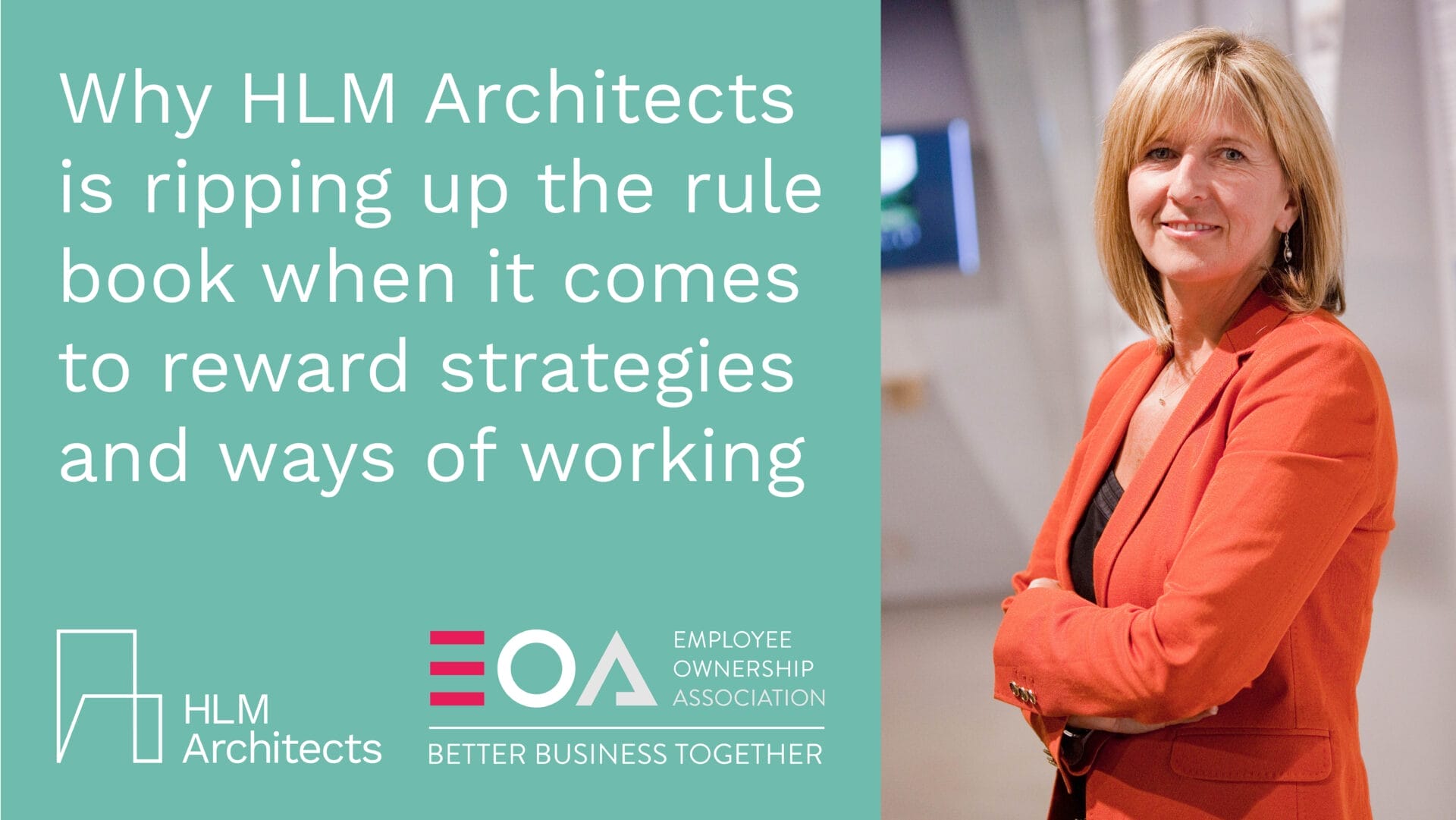
Karen Mosley recently spoke to the Employee Ownership Association (EOA) about why HLM Architects is ripping up the rule book when it comes to reward strategies. Find out what Karen had to say below and why she thinks the pandemic should really make us rethink, not only about what we’re providing in terms of rewards, but more importantly ‘why?’.
We want to design a new, sustainable way of working and shape our own future rather than it shaping us, so we can remain agile and responsive and protect our wellbeing too.
Karen Mosley was recently asked to speak at the Employee Ownership Annual Conference, where employee owned businesses share experiences and insights. Focussed on Unlocking Potential, Karen explored how reward strategies should be adapted post-Covid. Listen to her presentation, where she showcases our SMARTBlend pilot scheme and how we’ve taken the opportunity to look at our Lifestyle Benefits Package, plus the wider programmes we have running from two distinct angles:
Firstly: reviewing against 4 important cornerstones to determine how benefits might need to evolve for a post pandemic world – Financial, Physical, Emotional and Social.
Secondly: leaning back into Maslow’s Hierarchy of needs about the theory of human motivation, to see if what we are offering is structured well to improve engagement.
Karen said of our SMARTBlend pilot –
“As leaders, we’ve got to learn to let go. We need to introduce simple structures so people feel safe, but also let people hypothesise and experiment. We can accept if something doesn’t work, as it will probably springboard us to better solutions – and we’ll learn valuable new skills in the process. Staying open-minded will help our growth, not just in terms of turnover or profitability, but most importantly growth in our mindset and thinking. With talk of increasing wages, taxes, the cost of living, we’ve got to be SMART about what we do with the resources we have. We have the chance to create a more sustainable approach to the way we live and work, with wellbeing firmly at its heart.”
Karen also reflected that the EOT model seemed tailor-made for a post pandemic world. The underlying principles of an EOT – empowerment, trust, autonomy, thinking like an owner, entrepreneurial spirit leading to innovation, clear purpose, solid values – have been critical ingredients for any business to not only survive over the last 2 years, but to operate effectively and successfully in our new world of work. She felt the EOT structure therefore provided businesses with a solid framework to connect capabilities, empower employees and create their own immune system. She urged other businesses who were thinking about transitioning to push on and explore the model further, as there probably had never been a better time to do so.



